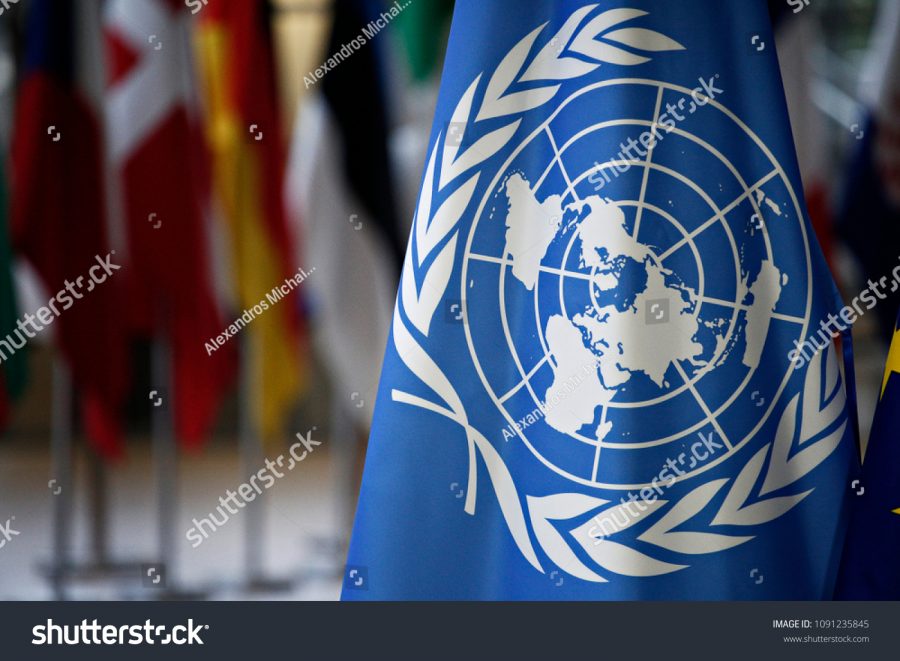On Tuesday, Oct. 9, Nikki Haley resigned as the U.S. Ambassador to the United Nations. While many of her predecessors in the Trump administration were forced to leave their positions amidst swaths of public scrutiny, a definitive reason for Haley’s departure was not readily available.
When pressed to elaborate on why she was voluntarily leaving her post, Haley cited “eight years of intense times” between both her gubernatorial career in South Carolina and her most recent position within the White House. While Haley may wish to avoid the limelight, her transition from the public to the private sphere will not go unnoticed.
Haley’s tenure as the ambassador to the U.N. may have been brief, but it was not without impact. Perhaps the most consequential move under her watch was the decision for the U.S. to withdraw from the U.N. Human Rights Council back in June. While many perceived this as a continuation of the administration’s desire to disrupt the international order, Haley claimed that the choice to leave stemmed from a “relentless, pathological campaign” against one of America’s strongest allies, Israel.
She posited that the council was willing to look past the human rights abuses of nations such as Russia and Iran in favor of attacking the Israelis for their actions in the Gaza Strip. Her comments reflected a new commitment to the Jewish state initiated by President Trump, which was accentuated with the U.S.’s recognition of Jerusalem as the capital of Israel in December of last year.
This pledge came at the expense of Palestinians in the area, as Haley advocated for prohibiting aid to them because of their opposition to the move. All in all, Haley did not shy away from confronting issues in the world’s most volatile region.
In terms of speculation as to what’s next for Haley, political experts have varying opinions on the subject. Some, such as College of Charleston professor Jordan Ragusa, believe that in terms of her resignation, “The most likely explanation is she wants to put some daylight between herself and Trump in advance of running for president.”
On the other hand, others were more skeptical about her motivations. Deb Riechmann of RealClearPolitics noted that Haley self-reported between $500,000 and $1 million of personal debt. Perhaps Haley foresaw that a shift to the private sector would help alleviate her financial stresses. Nevertheless, at only 46, she could still have a long career of public service ahead of her if she chooses to go that route.
Haley is popular amongst traditional conservatives for her stances on foreign policy and tax reform, while also garnering the support of more moderate Republicans, who see her as a fresh face in a party often accused of lacking diversity.
Haley was one of the few members of President Trump’s cabinet to maintain a substantial approval rating throughout the duration of her time in office. According to a poll from Quinnipiac University, 63% of Americans approved of Haley during her time as the ambassador to the United Nations. This leaves a significant hole for the Trump administration to fill, with no shortage of candidates to select from.
However, what makes Haley distinct from her contemporaries within the White House were the conditions under which she departed. While high-level officials such as Anthony Scaramucci and Steve Bannon were lambasted by President Trump upon their exit, Haley was given a laudatory send-off from the White House. Remaining both publicly well-liked and in good-standing with the president is politically advantageous for Haley, as her future in Republican politics remains bright.
In terms of what this means for the White House going forward, I believe President Trump and his advisors have a unique challenge ahead of them. After losing one of their most well-respected cabinet members, the Trump team must exercise caution and restraint when deciding who Haley’s replacement is. This means vetting dozens of potential qualified candidates in a thorough and expedient process.
Trump should also reign in his more nepotistic instincts and avoid promoting family members, such as his daughter Ivanka Trump or her husband Jared Kushner. With foreign policy becoming increasingly important in a more connected world, finding a stabilizing presence to fill Haley’s absence is essential.










































































































Anonymous • Oct 16, 2018 at 5:27 pm
4.5
Anonymous • Oct 16, 2018 at 5:24 pm
5